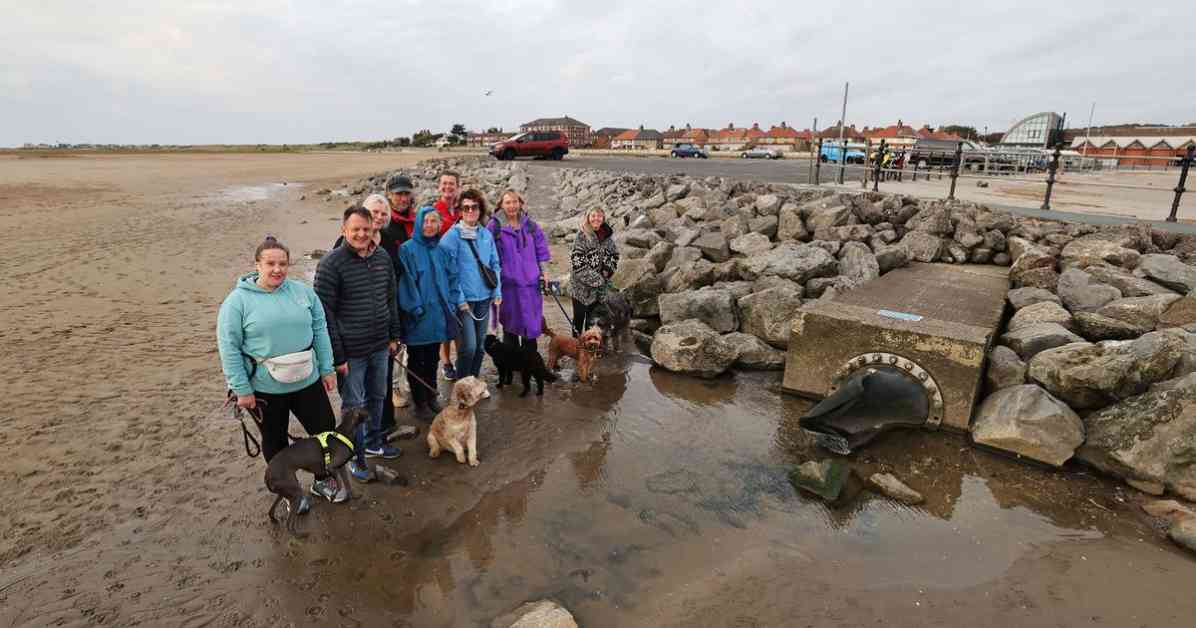Contamination Concerns at West Kirby Beach
A shocking discovery was made at one of Merseyside’s most popular beaches in Liverpool when a woman found that there was no swimming warning present. The Environment Agency issued a pollution warning two weeks ago urging people not to swim at the beach in West Kirby due to concerns about contamination. While warnings are based on forecasts, the government body is still investigating the possible causes of higher levels of bacteria in the area.
For three days from August 21 to 23, a warning was issued for the popular beach in West Kirby, telling swimmers not to go into the water due to pollution forecasts in the area. The pollution risk forecasting system alerts people when the water quality at designated bathing water sites may be compromised. The Environment Agency explained that there are many possible causes for pollution, including thundery showers, intense rainfall, high winds, high tides, surface water run-off, storm overflows, sea birds, and dog waste.
According to United Utilities, there were no discharges from overflows between August 21 and August 23. However, tests conducted over the past two years showed increased levels of bacteria in the water at West Kirby beach, causing its rating to drop from “excellent” to “good.” The beach, located at the mouth of the Dee Estuary, has been experiencing higher levels of intestinal enterococci and escherichia coli (e.coli) in the water, raising concerns about public health and safety.
Monitoring and Response to Pollution Reports
Tests conducted in 2023 and 2024 revealed higher levels of bacteria in the water at West Kirby beach on several occasions. On August 20, there were 360 colonies of e.coli per 100ml, which increased to 470 colonies on August 22. Following these results, a warning was issued, advising against swimming in the contaminated water. Subsequent tests showed a decrease in bacteria levels, but work is still ongoing to determine the root causes of the pollution.
The Environment Agency monitors West Kirby bathing water during the bathing season from May to September and classifies it as “good,” the second-highest grade. The forecasting system at West Kirby takes into account rainfall, wind, and tidal predictions to assess pollution risks and issue warnings accordingly. When a pollution risk is forecasted, the Environment Agency advises against bathing and notifies the local authority to display warning signs at the beach.
Residents and volunteers have been actively reporting potential environmental incidents, such as contamination sources and pollution concerns, to the Environment Agency, Wirral Council, and United Utilities. A volunteer water tester discovered “milky water” coming out of an outlet pipe near Dee Lane, which turned orange upon testing, indicating contamination. The pipe, which serves as a surface water outfall and sewage discharge point, has been identified as a source of pollution, raising questions about public safety and regulatory oversight.
Collaborative Efforts to Address Pollution Issues
United Utilities has implemented live monitoring on 100% of its storm overflows to track and address potential pollution incidents. However, the discharge point at Dee Lane, which has been identified as a contamination source, is not included in the company’s monitoring map. United Utilities is working to analyze data from the monitors and update the storm overflow map to address the historical misconnections and drainage issues in the area.
The Environment Agency, as the regulatory body overseeing environmental protection, encourages the public to report any pollution incidents or concerns to their 24-hour hotline for prompt investigation and response. Residents and volunteers play a crucial role in identifying pollution sources and raising awareness about potential health risks associated with contaminated water bodies. Collaborative efforts between the Environment Agency, local authorities, and water companies are essential to address pollution issues and protect public health.
In conclusion, the discovery of contamination at West Kirby beach highlights the importance of proactive monitoring, reporting, and response to pollution incidents in recreational water bodies. Public awareness, regulatory oversight, and community engagement are vital in safeguarding the environment and ensuring safe bathing water for all residents and visitors. By working together to address pollution sources and mitigate risks, we can protect our beaches and waterways for future generations to enjoy.




















